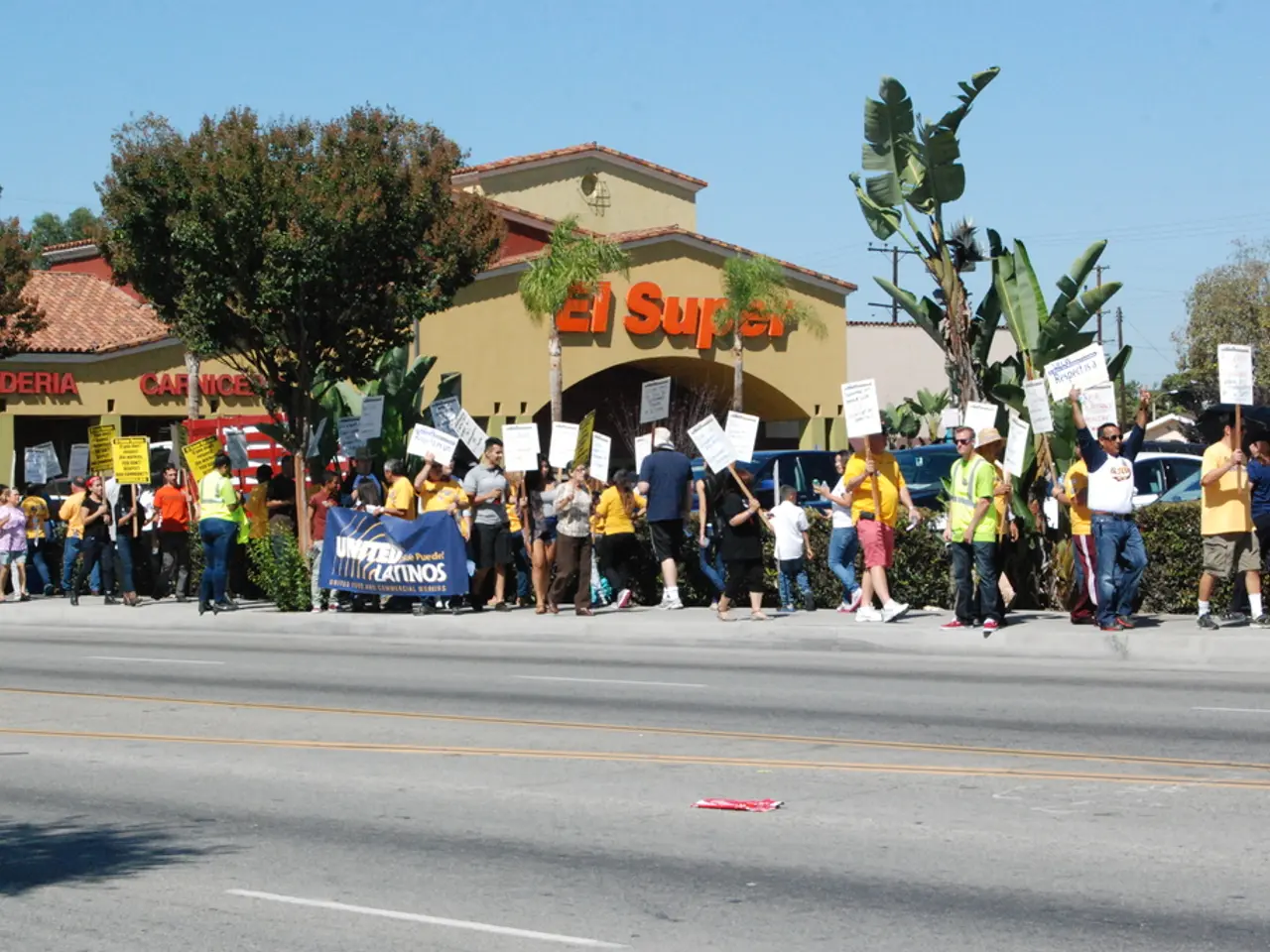"In the year 2027, a prominent Arewa leader, Sani, predicts that it could prove challenging for Atiku to concoct a strategy that would lead to his victory over Tinubu in the political arena."
In the political landscape of Nigeria, former Vice President Atiku Abubakar faces significant obstacles in his potential 2027 presidential bid against incumbent President Bola Tinubu.
According to Anthony Sani, the former Secretary General of the Arewa Consultative Forum, the current political climate does not favour Atiku Abubakar. Sani believes that devising a winning game plan will be difficult for Atiku in the context of escalating violence and security issues, ethnic and regional tensions, political fragmentation, youth disenfranchisement, and governance challenges.
The ongoing security crisis, particularly in Nigeria's Middle Belt region, has drawn criticism of President Tinubu's administration for its perceived inadequate response and framing of the violence[1]. This ongoing security crisis creates a complex electoral environment in which incumbency carries significant weight in terms of crisis management perceptions.
Ethnic and regional tensions remain significant. Local leaders, such as traditional rulers in Benue State, have publicly challenged the government's narratives, highlighting divisive communal conflicts with wider political implications[1]. This fuels broader political tensions that may make campaigning challenging for opposition figures like Atiku, especially where incumbent alignment with federal responses is questioned.
Political fragmentation and intra-party dynamics in key regions like Abia State indicate shifting allegiances ahead of 2027, with APC chieftains actively shaping preparations and messaging for Tinubu’s reelection bid[3]. This suggests Tinubu’s party has organized local bases, potentially consolidating support where opposition forces face a more fractured landscape.
Youth disenfranchisement and economic frustrations are crucial political undercurrents. Nigeria has a large young population with entrepreneurial potential, yet bureaucratic bottlenecks and a challenging regulatory environment hamper economic growth and employment, which constitute core issues for voters[4]. While this presents a potential area for Atiku to connect with youth aspirations, his ability to convincingly present an alternative strategy remains critical, given the current administration’s stated priorities.
Governance and inclusivity challenges, including weak governance structures and inadequate representation of marginalized groups in policy decision-making, undermine confidence in the political system[5]. Both candidates must address reforms and inclusivity agendas to win broader support, but the incumbent advantage in infrastructure and legislative moves typically favours Tinubu.
Moreover, the dynamics of zoning politics do not favour Atiku Abubakar. Most Northerners, according to Anthony Sani, would prefer President Bola Tinubu because he is the only southerner who has only one term of four years left[2]. On the other hand, most southerners would prefer the president to remain in the South for eight years from 2023[2]. Both the North and the South desire the president to be in the North in 2031, which does not bode well for Atiku's chances.
In conclusion, effectively challenging President Tinubu will require overcoming these multi-dimensional political dynamics and presenting a credible, inclusive, and strategic alternative for 2027[1][3][4][5]. Atiku Abubakar has a challenging road ahead in the 2027 presidential race against incumbent President Bola Tinubu.
[1] Nigeria: Escalating violence and security issues [2] Nigeria: Dynamics of zoning politics [3] Nigeria: Political fragmentation and intra-party dynamics [4] Nigeria: Youth disenfranchisement and economic frustrations [5] Nigeria: Governance and inclusivity challenges
- The EFCC and PDP may scrutinize Tinubu's policy-and-legislation and general-news records during his potential re-election bid in 2027, given the ongoing discussions about governance and inclusivity challenges in Nigeria.
- Atiku Abubakar faces a tough road ahead in the 2027 presidential race as he looks to challenge President Tinubu's dominance, given the dynamics of zoning politics that favor the incumbent as a southerner with only one term left.
- The APC's organizational efforts in critical regions like Abia State, with the aim of shaping preparations for Tinubu’s reelection bid, could prove challenging for Atiku, as it may consolidate support and potentially fracture opposition forces.
- Atiku Abubakar's ability to connect with youth aspirations through convincing alternatives to bureaucratic bottlenecks and a challenging regulatory environment will be significant in the 2027 presidential race, given the concerns about youth disenfranchisement and economic frustrations in Nigeria.
- In the run-up to the 2027 election, Atiku might find it difficult to devise a winning game plan due to escalating violence and security issues, ethnic and regional tensions, political fragmentation, and governance challenges that create a complex electoral environment in Nigeria, favoring the incumbent President Tinubu.








